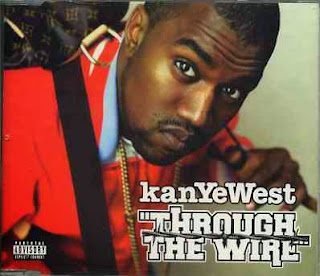Kanye West fue investido doctor honoris causa por el prestigioso Instituto
de Arte de Chicago pese a los reclamos de algunos estudiantes que firmaron una
petición formal para evitar su distinción.
El rapero y productor musical, que creció precisamente en la ciudad que
alberga el citado centro de estudios, se mostró nervioso al dar su respectivo
discurso y recordó cuando abandonó sus estudios universitarios para dedicarse
al arte.
Kanye West aseguró que "habría sido más sencillo" su camino en la
música si hubiera podido decir que "tenía un título del Instituto de Arte
de Chicago", donde su madre, fallecida años atrás, se desempeñó como
profesora.
Junto a Kanye West fueron distinguidos el director y presidente del
Instituto de Arte de Chicago, Douglas Druick, la galerista Rhona Hoffman y
Janet Naiman, de la Fundación LeRoy Neiman.
Kim Kardashian, esposa de Kanye West, escribió el siguiente mensaje en
Twitter tras la distinción: "Dr. Kanye West. Estoy muy orgullosa de ti,
cariño, y sé que tu madre lo estaría también".
People were not happy with the news that
Kanye West would be headlining this year’s Glastonbury festival — the UK’s
largest music festival, which sees 135,000 festival-goers converge on Worthy
Farm, in Southwest England, for one star-studded summer weekend each year. A
change.org petition started by a Norfolk mann named Neil Lonsdale has already
garnered over 50,000 signatures and a slew of angry comments. (Meanwhile, the
“White People Angry about Kanye” Tumblr is seeing its highest flurry of
activity since Beck-ghazi).
“Two years ago we had The Rolling Stones
playing the Saturday night, and this year we get Kanye West?” Lonsdale told
NME. “Glastonbury needs upbeat major artists. Glastonbury is an institution. It
is expected that it has the biggest names. The biggest performers. Kanye does not represent that.”
This isn’t the first time that hiring a
hip-hop act to headline Glastonbury has sparked outrage; Jay Z was the first
hip-hop artist to headline the festival back in 2008, and it ignited a similar
firestorm, with Oasis’s Noel Gallagher whining “Glastonbury has the tradition
of guitar music,” and “I’m not having hip-hop at Glastonbury.” (Jay Z had the
last laugh, performing a historic, crowd-pleasing set that kicked off with a
cover of Oasis’ Wonderwall). Even Beyonce’s headlining gig got some backlash,
back in 2011, as people bemoaned the continued “popification” of the festival
(her set also kicked ass, naturally).
To be fair, no matter who headlines,
there’s always controversy: Glastonbury is a uniquely English institution — it
was originally titled the Pilton Pop, Blues & Folk Festival — and many feel that inviting major global pop and
R&B stars to headline the festival is a bastardization of the show’s
low-key folk arts roots. Yet this divisiveness plays to an unhealthy strain of
rock purism — a retrograde fetishization of the Beatles/Stones/Who/Zeppelin
model of rock-god artist that clings to a tired insistence that rap isn’t “real
music,” completely dismissing the different, but no less valuable and
difficult, musical skills that hip-hop composition demands (electronic music
has faced similar criticisms).
It’s also hard to ignore the racial
component of these sorts of remarks. As critic Amina Taylor wrote in the
Guardian during the Jay Z flap, there is a disquieting undercurrent to some of
the criticism about Jay Z’s appearance. “If hip-hop, the music that has been
the soundtrack for my life, is not welcome, then I don’t feel welcome either.
There has never been any public outcry about black, non-guitar acts performing
at Glastonbury (Dizzee Rascal, Al Green, Jimmy Cliff), just so long as they
stay at the bottom of the bill. Know thy place. Move up to headline status and
things suddenly take a different turn. Do well, but not too well; that will
most definitely be held against you.”
Or, as critic Jo Haynes wrote in her
analysis of the Jay Z incident in her book “Music, Difference and the Residue
of Race”: “The support for rock was interpreted as a racist preference for
white music and musicians, drawing on the historical associations between rock
music, whiteness and Britishness.” Hip-hop is a distinctly American art-form;
as Haynes suggests, the backlash speaks to a certain strain of anti-Americanism
within the UK, that rejects the perceived Americanization of global pop culture
and supports British acts as a form of cultural patriotism and a way of
asserting Nationalist ideals (despite rock’s decidedly American origins).
Sure, there’s value in tradition — but
things have changed a whole lot since Glasto launched back in the 1970s. Back
then, the festival catered to an audience of 1,500, the ticket price was one
pound, and there was free milk from the cows at Glastonbury farm. Now it draws
200,000 people who pay upwards of 200 pounds to see some of the biggest artists
from across the globe, in all genres, in a three-day food, arts and music
spectacle with its own city-sized economy. Likewise, the face of the music
industry has changed substantially — hip-hop and electronic artists are global
superstars, and it makes no sense for Glastonbury to pretend otherwise. To say
that Kanye shouldn’t play Glastonbury because he doesn’t play guitar seems like
a bizarre bit of retro conservatism that isn’t reflective of the tastes and
desires of the majority of festival-goers.
Of course, Kanye comes with his own
individual baggage, and maybe people just don’t want to see naked pictures of
Kim — swish! — projected during the performance or are worried the scaffolding
supporting the Pyramid stage will buckle under the weight of Kanye’s massive
ego. That’s another story. But if it’s about the music — and it should be —
these sorts of silly, dated criticisms need to be put to rest.









No hay comentarios.:
Publicar un comentario